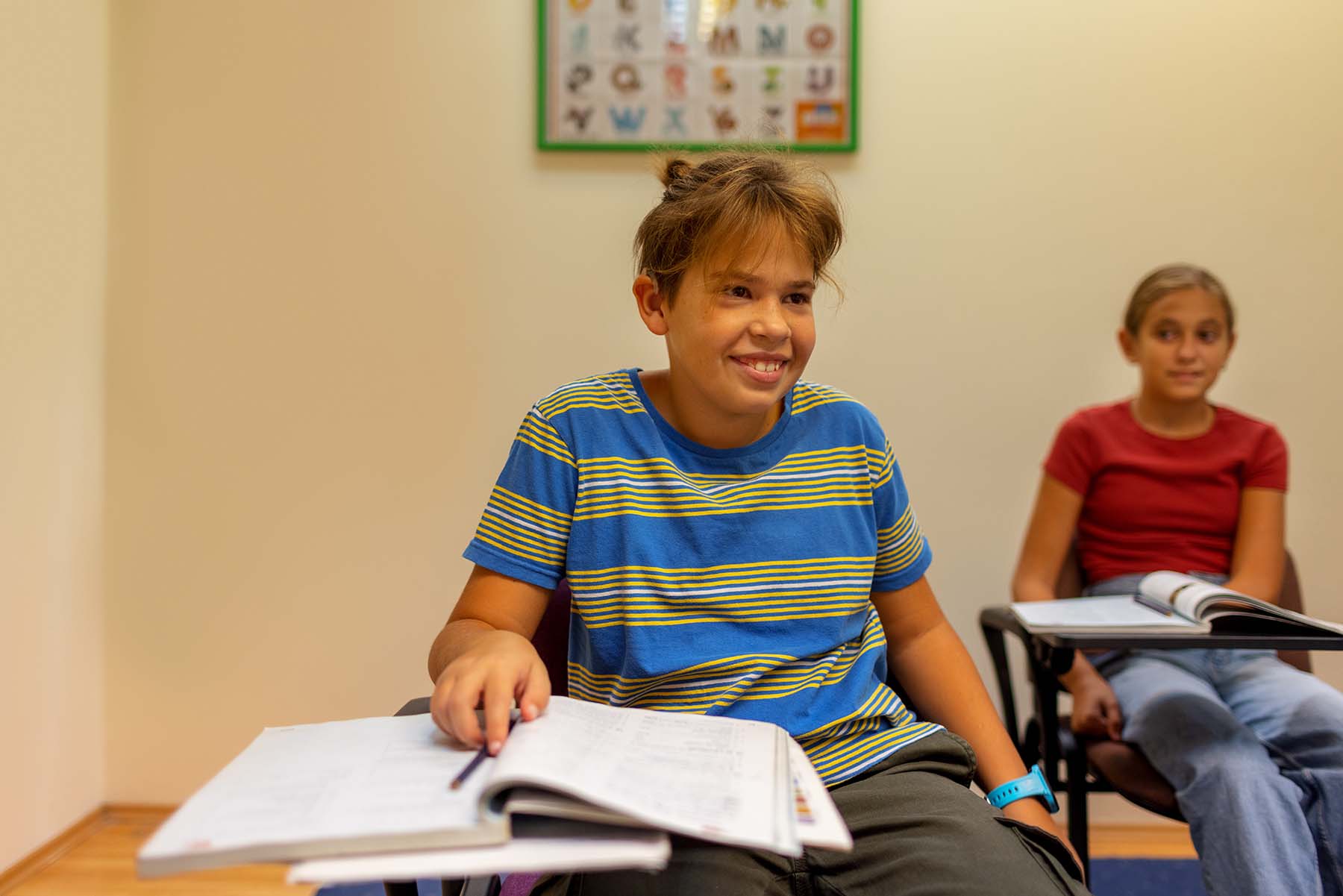Improving the Quality of Life for Deaf Children

The parents of young children with severe to profound hearing loss face an important decision affecting their child’s development. A deaf child may wear hearing aids to amplify sounds, or they may qualify for a cochlear implant device that’s surgically implanted to improve sound perception.
Pediatricians often advise families of children with both hearing loss and cognitive or developmental impairments to go with hearing aids. The reason? These children have limited potential to acquire verbal communication skills.
But, researchers have come to a different conclusion.
Cochlear implants may improve language and auditory skill development and cognitive and adaptive behaviors for many hard-of-hearing children.
The journal Pediatrics recently published a study regarding children with severe to profound hearing loss. The authors claim that, regardless of their cognitive status, these children may experience more significant improvements in cognition, adaptive function, language, and auditory skills following cochlear implantation than those wearing hearing aids.
The children with cochlear implants in this study and their families also reported less stressful parent-child dynamics.
“This study is among the largest to date that compares children with cognitive and adaptive delays who continue to use hearing aids versus those children with cochlear implants. Several other studies have documented the overall benefits that cochlear implants provide on a child’s overall development,” says Ivette Cejas, Ph.D., a clinical pediatric psychologist, and director of Family Support Services at the University of Miami Health System’s Children’s Hearing Program.
“My research across the past decade has also supported these findings. It is not surprising that those who utilized cochlear implants had better overall developmental outcomes, as cochlear implants provide improved auditory access that fosters a child’s overall development, including listening and spoken language skills.”
Are cochlear implants a good choice for your child?
“All children should have an equal opportunity to undergo cochlear implantation if that’s the family’s choice,” Dr. Cejas says.
She and other researchers recommend that parents consider cochlear implants for any child with severe to profound hearing loss, regardless of any additional health challenge.
“Over 40 to 50% of children with hearing loss have an additional medical or developmental condition,” she says. “We need to do a better job identifying and referring these children as early as possible so they may obtain the maximum benefit of cochlear implants, to encourage language development and increase the likelihood these children can succeed in mainstream schools.”
Cognitive or adaptive functioning should not be used to rule out treatment options for children with hearing loss, according to Dr. Cejas.
“For children with developmental delays, these cognitive and adaptive skills can change over early childhood and have been shown to be positively responsive to intervention,” she says. “While the trajectory of development is different for children with additional disabilities, access to early cochlear implantation is essential to providing all children with severe to profound hearing loss the opportunity to develop auditory, listening, and spoken-language skills to their capacity that would not be possible with hearing aids.
All children should be given an equal opportunity to develop to their full potential.
Dr. Cejas
To determine if your child with hearing loss is a good candidate for cochlear implantation, get an evaluation by a comprehensive, multidisciplinary pediatric program.
The Children’s Hearing Program at UHealth provides families access to a collaborative team of otologists, audiologists, speech and language therapists, psychologists, educators, and social workers. The program guides each family throughout their hearing-loss journey while supporting their goals for communication.
“We conduct a developmental evaluation to obtain a better understanding of the child’s functioning, along with an audiological and speech and language evaluation,” Dr. Cejas says.
“We then meet with the family to discuss realistic expectations, goals for language development, and how the treatment plan may differ from one for a child without any additional disabilities. We are proud to provide this comprehensive care to all families seeking hearing healthcare.”
To schedule an appointment with the Children’s Hearing Program, call 305-243-1110 or request an appointment online.
Dana Kantrowitz is a regular contributor for UHealth’s news service.
Tags: children with hearing loss, CHP, Cochlear Implants, Dr. Ivette Cejas, ENT care in Miami, hearing aides for children, hearing in Miami, kids hearing, UHealth CHP
